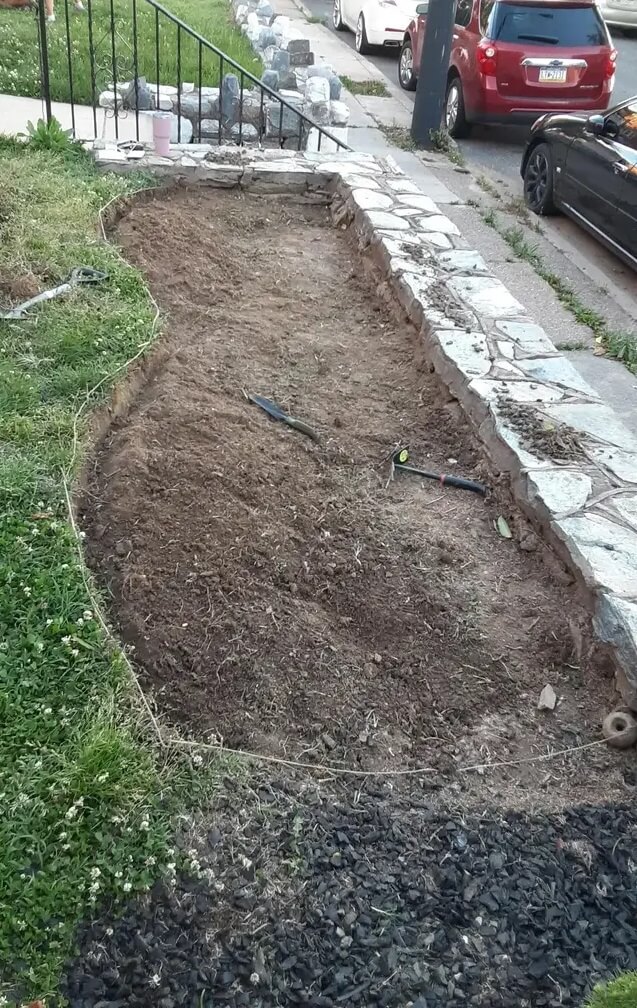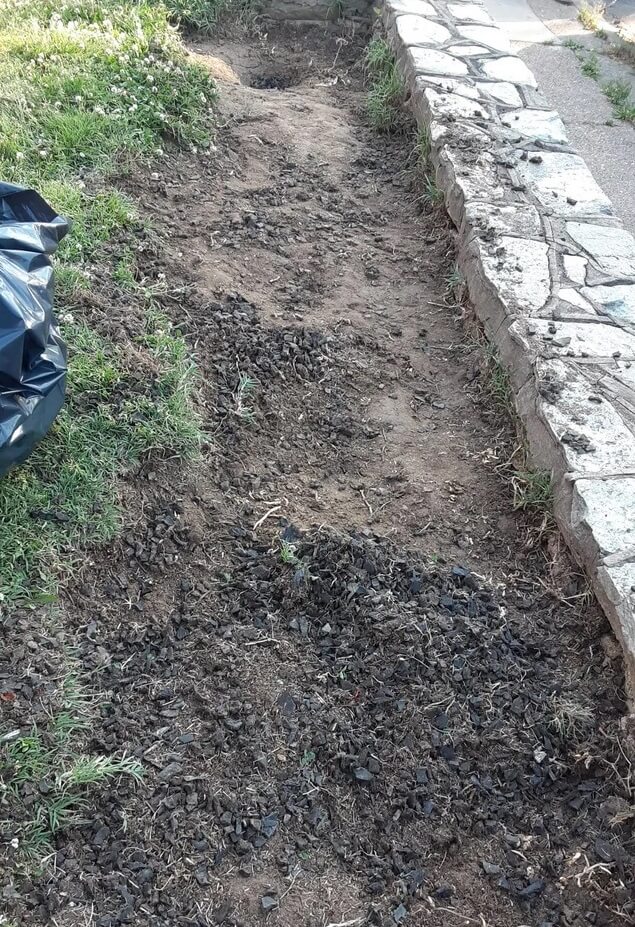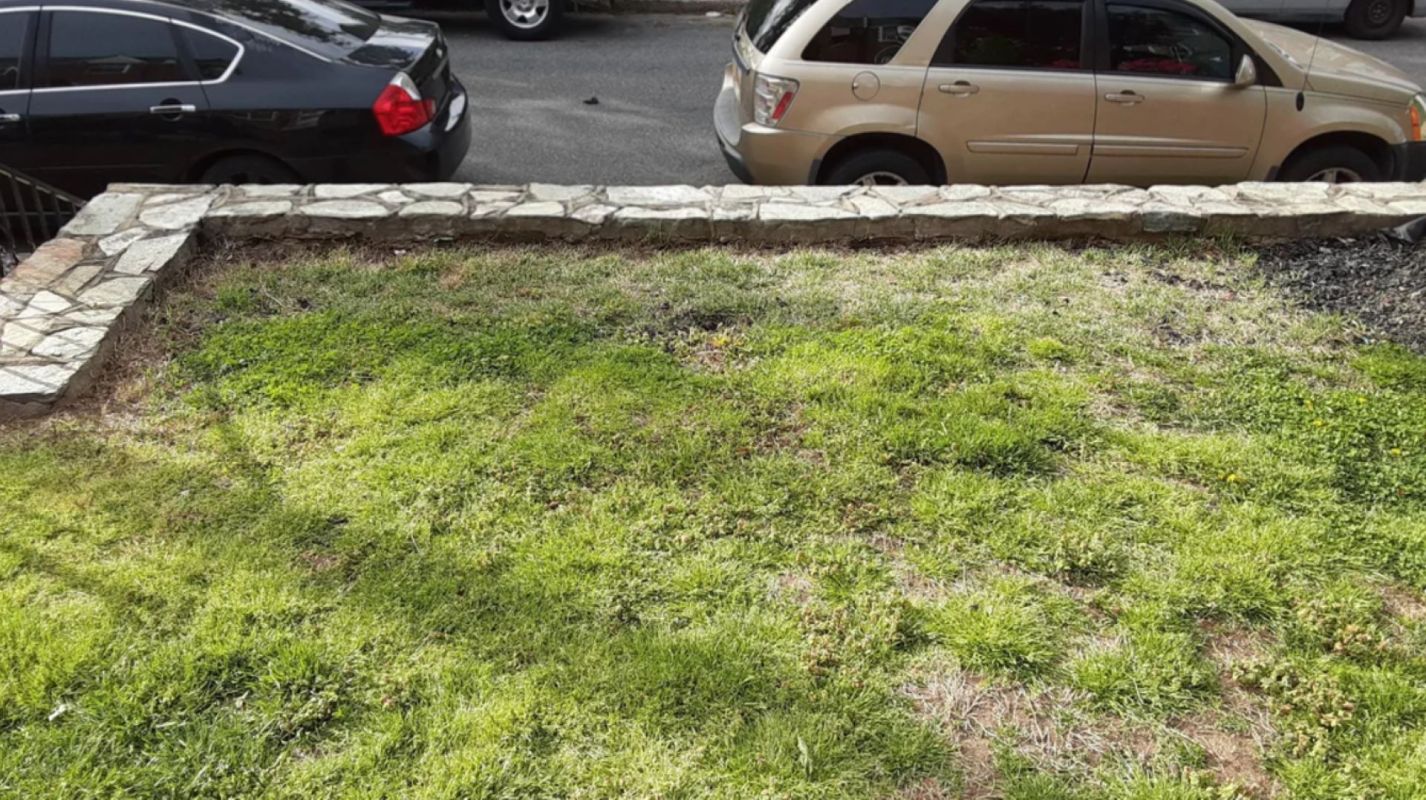One homeowner had to dig deep to get rid of a poorly thought-out landscaping feature installed by the previous occupants.
"Pulled up eight-year-old weed fabric and tons of rubber mulch!" they said in a post in r/gardening. "Couldn't remove it all; will it be okay?"


Ordinary mulch, made from organic materials like wood chips and straw, is a huge boost for a yard. It smothers weeds, helps the soil retain water, and adds nutrients to the soil — so much so that it can completely revive a lifeless yard, as another Redditor proved.
But rubber mulch is different. Often made from shredded tires, it doesn't break down into beneficial nutrients. Instead, it can leak chemicals into the soil. Also, because it's made up of small bits that can wear down into smaller particles over time, it's a pain and a half to remove.
Luckily, this homeowner had only a small patch at the front of their lawn to remove. "Making progress!" they said. "So excited for my first garden."
Their "before" photo shows just how overgrown the area had gotten. All you can see is a spot where the grass is more discolored and patchy along the stone retaining wall. The second photo, with the area partially dug up, reveals the extent of the issue.
"There was so much rubber mulch embedded in the grass and fabric and tons left behind," the Redditor said.
The Redditor dug out as much of the mulch as they could find, expanded the garden bed, and gave it an attractive curved edge. "Now I'm ready to fill and plant!" they said. "Hopefully the bits of rubber mulch I couldn't get won't negatively affect my garden."
Commenters were impressed with the original poster's efforts — and just as impressed with the previous tenant's poor judgment.
"Wow, I didn't even know rubber mulch was a thing!" said one user. "That seems like a terrible idea. Looks like you did a good job getting it out."
"It is a terrible idea!" replied the original poster. "I would personally never use it. It was a nightmare to remove."
There are much more eco-friendly ways to recycle used tires than to turn them into mulch. For example, one Florida company recycles them into an innovative building material called Echo Flow.
Join our free newsletter for easy tips to save more, waste less, and help yourself while helping the planet.









